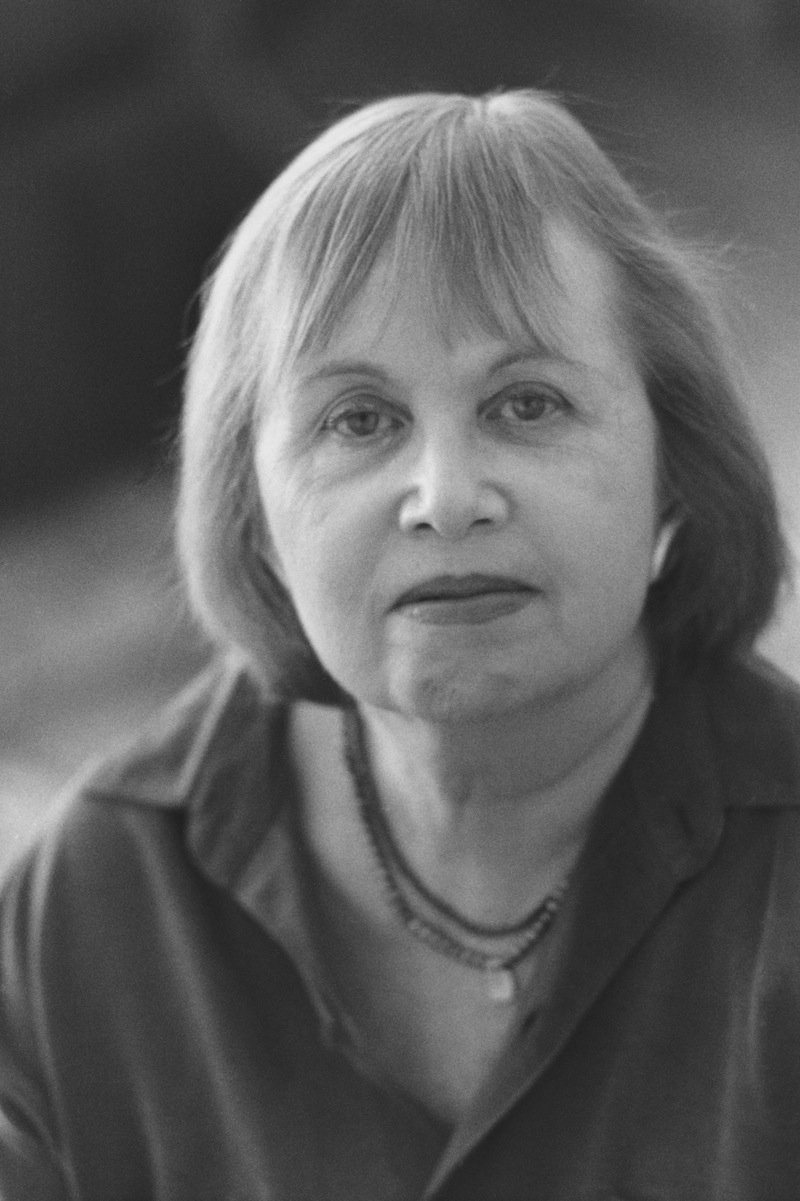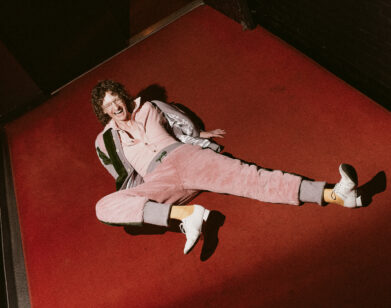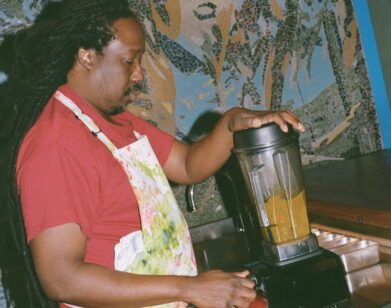Joyce Johnson Clears Up Kerouac

ABOVE: JOYCE JOHNSON. IMAGE COURTESY OF MELLON TYTELL
In Joyce Johnson’s biography The Voice Is All: The Lonely Victory of Jack Kerouac (Viking), the author brilliantly and intimately gets beyond the Kerouac legend to the solitary soul of the man. Johnson had a romantic relationship with Kerouac at the height of his fame—so many years later, she is better able to understand and describe his struggles with duality, drinking, and writerly ambitions through her own lens. From his French Canadian background and boyhood, through his startling and sometimes damaging success, Johnson’s portrait is both tragic and admiring. We see a Kerouac who worked hard at his craft—not just a carouser (he was often mistaken for his main character in On The Road). It is often said that there is not much interesting about watching a writer writing, but here Johnson has infused Kerouac’s work with excitement, struggle, desperation and love. We spoke with Johnson about Jack’s guilt at existing, living through other people, Kerouac’s mother, sacrifice, literary celebrity, and how artists survive.
ROYAL YOUNG: There was a sense of duality in Kerouac. How does that factor into human relationships?
JOYCE JOHNSON: Jack seems to have been preoccupied with the question of duality from a very young age. He seemed to feel that there was more than one person inside him. Indeed he would veer from friendly, open and so on to someone who was angry. In a way, there was a swing also between his American self and what he later called his Franco-American older brother. There was a swing between the deeply introverted part of himself and the person he became out in the world, having to act in an extroverted way.
YOUNG: When you say out in the world, what do you mean?
JOHNSON: Among people, among friends. When he wasn’t holed up at home with his mother. When I had my own relationship with him and he was living with me, I really saw him when he was sober and quiet and sweet and considerate. Then I would go out with him and he would get very drunk and become a different person.
YOUNG: Do you think that was overcompensation for his insecurity?
JOHNSON: I think he was sort of terribly guilty about existing. It went way back to the death of his older brother. His mother told him when he was only four years old that his brother had died to save him. That’s a terrible, terrible burden.
YOUNG: Duality and living through other people—how much is that an expression, do you think, of who we really want to be?
JOHNSON: We derive a lot of the reality of ourselves through interactions with others. Don’t you?
YOUNG: I do. But also in imaginary interactions.
JOHNSON: Yes, and for Jack, it was a more acute issue than it is for most people. His voice keeps changing in his journals, especially around 1946, the year he’d been taking a lot of Benzedrine and he had an attack of phlebitis, which hospitalized him. Then he withdrew into his parents’ apartment and really turned against all the people like Burroughs and Allen, who had been his friends.
YOUNG: Do you think all artists are lonely?
JOHNSON: Well, I think art, the discipline of creating, really does require tremendous solitude. But the whole creative process can seal your life to such an extent that while you’re creating, you feel very self-sufficient. I’ve certainly experienced that.
YOUNG: Do you think it’s worth it to sacrifice everything for one’s craft?
JOHNSON: It’s something some people can’t help. They can’t help themselves. They must do it. They’re driven to do it. There’s the popular image of Jack out in the world, partying and drinking. But the reality is he spent the greater part of his adult life wherever his mother happened to be living, holed up in a room writing.
YOUNG: So in a sense then, his relationship with his mother was more important than his art?
JOHNSON: Oh no, but I think his mother enabled his art. What he couldn’t handle was being totally alone. He was alone in the sense that he was cut off from his friends and having sex, but there was someone there. Someone attending to his needs and just there. That pattern established itself very, very early when he was a kid holed up in his room doing all these imaginative games and writing, and his mother would sort of appear and give him a cupcake. I think that worked for him.
YOUNG: Is it a constant battle between how much you need people versus how much you need to create?
JOHNSON: Definitely. If you want to do creative work, there are tremendous sacrifices involved, and for Jack, tremendous financial sacrifices too. It requires dedication and solitude. There’s a popular notion, and Patti Smith said, “Oh, he just spewed his words on paper.” It didn’t just effortlessly come out. That shows so little understanding and respect for him, really. I’m trying to correct that impression.
YOUNG: Jack’s life has been so morphed into a strange kind of celebrity.
JOHNSON: He has, and people haven’t understood the part of him that made a real contribution.
YOUNG: It’s so hard, when someone becomes an iconic public figure, to separate that from who they are as a person.
JOHNSON: It is. But we have such a fascination in this country with the details of people’s dysfunctionality. Jack is sort of treated as if he’s a young Drew Barrymore.
YOUNG: [laughs] Is that wrong?
JOHNSON: I think it’s wrong.
YOUNG: Why?
JOHNSON: I think even celebrities deserve their privacy. I really do. It’s sort of a hideous spectacle, the public feeding on all this information.
YOUNG: Is it quite hard to share someone you know so intimately with the public?
JOHNSON: No, it isn’t, because I’ve felt the need for a book like this for such a long time. Ever since the biographies started coming out, I’ve felt really distressed about the lack of understanding of Jack they showed. I even begged a couple of scholars whose work I respect a great deal, “Please write a decent biography of Jack.” Finally, when I could look at his archives, I knew I just had to do it. Also, though I had a personal relationship with Jack, that was very long ago. I was a kid then. I was going through all this in the middle of him becoming very, very famous, and it was a lot to handle. I understood him so much less well than I do today.
YOUNG: Do you think fame and success change people?
JOHNSON: Oh yes. It puts tremendous demands on people. It robs them of their necessary privacy and anonymity. That’s hard for even healthy people to deal with. And Jack, by the time he became famous was so fragile.
YOUNG: How do artists survive?
JOHNSON: A lot of artists don’t survive, do they? You work very hard and finally you get what you want and it destroys you.
YOUNG: So where’s the light?
JOHNSON: He did what he most wanted to do. He wrote great prose. He became the writer he wanted to be.
YOUNG: But it didn’t save him.
JOHNSON: Nothing could save him.
THE VOICE IS ALL: THE LONELY VICTORY OF JACK KEROUAC IS OUT NOW.






